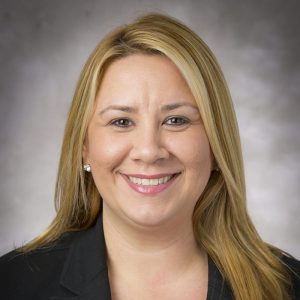In this article:
- The differences between FSAs and HSAs
- Dental care FSA/HSA exceptions
- Advantages of using FSAs or HSAs with dental savings plans
With some exceptions, such as cosmetic dentistry and certain types of orthodontia, you can use the finds in your FSA or HSA for dental care. Read on to understand what qualifies for reimbursement and how to maximize the funds in your account – plus reduce the costs of procedures that are not reimbursable.
Understanding FSAs and HSAs
Flexible Spending Accounts (FSAs) and Health Savings Accounts (HSAs) are both tax-advantaged accounts used for medical expenses, but they differ in key ways:
Eligibility – FSAs are available to anyone with health insurance through their employer, while HSAs are only available to those with a High Deductible Health Plan (HDHP).
Ownership and Portability – An FSA is owned by the employer and ceases if you leave the job, whereas an HSA is owned by the individual and is portable across jobs.
Contribution Limits and Roll Over – For 2023, the FSA contribution limit is $2,850, and not all funds roll over at year-end (some plans allow a small carryover or grace period). For tax year 2024, the FSA contribution level increases to $3,200, and the carryover amount increases to $640. In contrast, the HSA contribution limit is higher ($3,850 for individuals and $7,750 for families in 2023) and all unused funds roll over indefinitely.
Investment Growth – HSA funds can be invested and grow tax-free, while FSAs do not offer this benefit.
Both accounts can be used for a range of medical expenses, including dental care, with – as noted above – some exceptions.
Dental Procedures not covered by an HSA/FSA
FSA reimbursement rules for dental care can be found in IRS Publication 502. The general guideline is that anything that directly treats or prevents a dental disease is eligible for FSA coverage.
It is important to know that while the IRS provides general rules for HSAs and FSAs, each plan sponsor may interpret the specific details of those rules differently. Contact HR or the plan sponsor directly to understand what is and is not eligible in your plan.
Since a qualified expense must directly benefit your health, personal care items such as floss, toothpaste, and mouthwash are typically not eligible. If your dentist prescribes items like medicated mouthwash, specialty electric toothbrushes or water flossers, it is likely a qualified expense. You may also find that some products, like denture adhesives, are considered a qualified HSA expense. This is because a denture adhesive is not a “general use” item and is tied to a specific medical issue. If your dentist determines that a general use item is essential to your health, they can classify the expense as “dual purpose.”
Cosmetic procedures – such as teeth whitening, veneers/overlays, dental implants and orthodontics for cosmetic purposes are not eligible for FSA reimbursement. Talk to your orthodontist to see whether your treatment is considered medically necessary.
You can reduce the cost of cosmetic procedures by joining a dental savings plan.
Dental savings plans: a quick overview
A dental savings plan (also known as a dental discount plan) is not insurance. Instead, it’s a membership that gives you access to discounted rates for dental services with participating dentists. These plans have a low annual fee and can provide substantial savings, especially for those without dental insurance.
And, unlike dental insurance, with a dental savings plan you don’t have to worry about deductibles, annual spending limits or waiting before you qualify for reduced rates. You can use your plan within 72 hours of joining to save on virtually all dental care, from checkups to root canals, crowns, bridges and dentures – many plans even include discounts on treatments like dental implants and cosmetic services that insurance rarely pays for.
Advantages of using FSAs or HSAs with dental savings plans
No matter which type of account you have, you can use it – along with a dental savings plan – to maximize your savings at the dentist. With a dental savings plan, you get discounted rates, and pay the dentist directly. By using your FSA or HSA to pay for dental services, you’re using pre-tax dollars to pay for already reduced dental costs, maximizing your savings.
See how much you can save with a dental savings plan.
Use our calculator below >
Make sure to plan your contributions. Estimate your annual dental costs and plan your FSA contributions accordingly (if you’re using an FSA). Since FSA funds are use-it-or-lose-it (with limited exceptions), you don’t want to overfund it. With an HSA, overfunding is less of a concern since funds roll over. And always keep receipts and documentation for your dental expenses. You might need them for reimbursements or tax purposes.
Make sure that you know what your FSA or HSA covers. As noted above not all dental procedures might be eligible. But with a dental savings plan, you can still reduce the cost of those treatments. Plan members report saving an average of 50%* on their dental care.
If you’d like help choosing the best dental plan for you, give us a call at 1-833-735-0399. We’re DentalPlans.com, the largest dental plan marketplace, with over 25 plans from the most trusted brands in healthcare, accepted by over 70% of dentists and specialists nationwide.
Want to know right now how much you could save with a dental savings plan? Use our calculator below for a quick peek.
*Discount Health Program consumer and provider surveys indicate average savings of 50%. Savings may vary by provider, location, and plan.

 Login
Login

